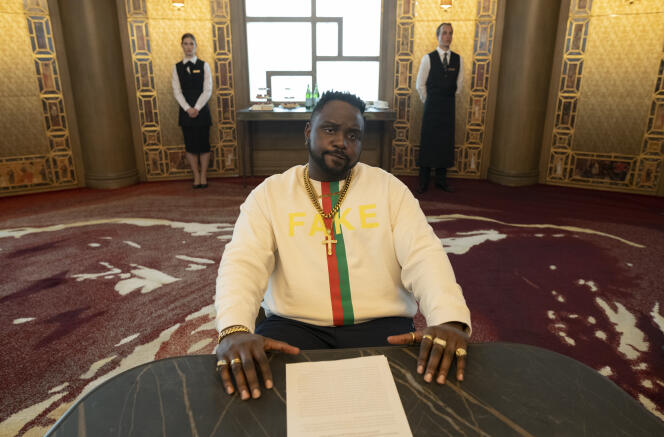
CHRONIC
Placing a scene after the end credits involves the risk that the viewer will not see it, especially if he watches the episode in replay or on a video on demand platform. Yet it would be a shame to miss the one that concludes the tenth episode of this strange season 3 ofAtlantaas it brings some semblance of consistency to what came before, and heralds some interesting developments for Season 4, which will air in the fall.
This final episode, titled “Tarrare,” features the character of Vanessa, Earn’s ex-girlfriend, whose dashing presence throughout the season raised questions about her sanity. After suddenly quitting the Paper Boi tour and leaving Earn without news, Vanessa reappears in Paris, where she seems to lead the life of Amélie Poulain. Recognized in a butcher’s shop by a passing friend, Vanessa pretends to have forgotten where she comes from. This episode, as twisted as the others, will be about a stale baguette, breaded hands (you read that right), golden showers and Alexander Skarsgard.
We have to wait until the end of the credits for Donald Glover to catch up with us by the collar, in an enigmatic scene whose meaning escapes us, but only for the moment. We see Earn having a piece of luggage delivered to him which he does not recognize and which nevertheless bears his name. In the bag, a Deftones t-shirt, medicine, a picture frame. Pictured is a white family whose father appears to be the white man who terrorized his black friend during a night fishing trip on a lake in the first episode. The fourth season ofAtlanta, which will be his last, will perhaps answer the questions raised by this strange moment. In the meantime, the series will have profoundly changed in its form.
Parody and horror episodes
When it first aired in 2016, Atlanta wowed audiences with his bold, fierce and comedic depiction of what it means to be black today in the United States. Two “stand-alone” episodes in particular, one parodic, the other horrifying, gave wings to the series. The first, B.A.N, sent Paper Boi, rapper and cousin of Earn, in a talk show broadcast on black television, Black American Network. Everyone remembers the second, Teddy Perkins (taken from season 2), in which Donald Glover delivered a disturbing number of whiteface. Presumably galvanized by the doors ajar in these two memorable episodes, the screenwriters ofAtlanta have made this third season a series of digressions which, despite a wide variety of forms, all tell of racism.
You have 44.65% of this article left to read. The following is for subscribers only.
–


